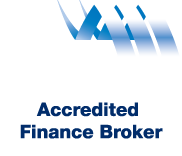If you’re a first home buyer, you may be eligible to withdraw voluntary super contributions you’ve made to put toward a home deposit.
Through the First Home Super Saver Scheme (FHSSS), first-home buyers may be able to use Australia’s superannuation system as a tax-effective way to save for part of their home deposit.
How does it work?
If you’re an eligible first home buyer, aged 18 or over, you can withdraw voluntary super contributions (which you’ve made since 1 July 2017) to put toward a home deposit.
Under the FHSSS, first home buyers, who make voluntary super contributions of up to $15,000 per financial year into their super, can withdraw these amounts (in addition to associated earnings / less tax) from their super fund to help with a deposit on their first home.
If you’re eligible, the maximum amount of contributions that can be withdrawn under the scheme is broadly $30,000 for individuals, or $60,000 for couples.
What counts as a voluntary super contribution?
Salary sacrifice contributions
Salary sacrificing is where you choose to have some of your before-tax income paid into your super account by your employer.
This is on top of what your employer might pay you under the Superannuation Guarantee, which will be no less than 9.5% of your earnings, if you’re eligible.
Making salary sacrifice contributions does involve a reduction in your take-home pay, but it also means you could increase your retirement savings while also potentially reducing what you pay in tax. If you’re thinking about setting up a salary sacrifice arrangement, please ensure that you receive financial advice from a licensed professional.
After-tax super contributions
This is where you make an after-tax contribution into your super using money from your regular bank account, savings, an inheritance, or from the proceeds of the sale of an asset.
Tax-deductible super contributions
These are contributed as after-tax super contributions, with the difference being you have or can claim a tax deduction on these contributions in your tax return.
How does the scheme benefit first home buyers?
Due to the favourable tax treatment, generally available through super, the FHSSS intends to help first home buyers to grow their deposit more quickly, while potentially reducing the tax they pay.
When money is withdrawn under the FHSSS, amounts that were contributed as before-tax or tax-deductible contributions are taxed at your marginal tax rate, less a 30% tax offset, while amounts that are contributed as after-tax contributions aren’t subject to additional tax.
Note, tax will apply to associated earnings.
Meanwhile, it’s important to understand that the money you save through the scheme mightn’t be enough for a full deposit to buy your first home, but you could combine it with other methods of saving to help you get there faster.
How do I withdraw contributions under FHSSS?
To make a withdrawal under the scheme, an application to the Australian Taxation Office (ATO) will be required, and an eligible person is only allowed one FHSSS withdrawal in their lifetime.
There are super contributions which will not qualify and cannot be withdrawn under the scheme, such as Superannuation Guarantee contributions (which are those made by your employer), as well as spouse contributions (which are those that your partner may choose to put into your super fund).
What else should I be aware of?
- You must buy residential premises. This includes vacant land (if you’re planning to build), but not any premises that can’t be occupied as a residence, and not a houseboat or motor home.
- You’ll need to buy a home or land to build on within 12 months of withdrawal. You can ask the ATO to extend this to 24 months if required.
- FHSSS amounts that are withdrawn and not subsequently used for a property purchase must be put back into super as after-tax contributions, or penalties will apply.
- The first-home buyer must reside at the property for at least six months in the first 12-month period from when it can be occupied.
- The maximum amount you can contribute each year to your super account under the FHSSS is $15,000, with the maximum amount you can save under the scheme $30,000. On top of that, there are also annual contributions caps in place you should be aware of.
- Additional rules may apply to your situation, so make sure you do your research before making any decisions.
Where can I go for more information?
Talk to your financial adviser and if you don’t have an adviser but would like some advice please contact us and we will connect you to a licensed advisor.
Finance Circle Group
1300 FCGNOW
- This advice is general and has not considered your objectives, financial situation, or needs. It is not personal advice. Consider whether this advice is right for you, having regard to your own objectives, financial situation and needs. You may need financial advice from a suitably qualified adviser. Consider the product disclosure statement (PDS) before making any financial decision.
- This web site and the articles are for information and in giving you product information Finance Circle Group is not making any suggestion or recommendation about a particular credit product or loan. If you decide to apply for a credit product or loan, you will deal with a broker such as Finance Circle Group who will provide further required information according to your needs and objectives.
- Before you elect to terminate or modify existing lending arrangements, it is recommended that you consider all associated fees and application costs, as well as the timing and impact these changes could have on your wider financial arrangements and personal circumstances.
- The examples provided in the article are not based on actual products or real consumer circumstances. The information in this article is of a general nature only, and does not take into consideration your objectives, financial situation or needs. It is not personal advice, and you should not rely on it, even if the example is similar to your own circumstances. You should make your own enquiries and calculations based on your own personal circumstances as well as finding out specific product costs, rates or features that may be relevant to you. You should consider seeking independent advice before making a purchase, credit, or investment decision.


